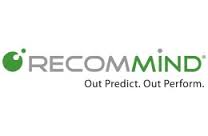
17 September 2015 – Our Media division has 4 dedicated souls who focus on following our four major subject areas/sectors: artificial intelligence, e-discovery, neuroscience and TMT (technology, media, and telecommunications). I think they follow a combined total of 388 web sites and blogs, assisted by several tracking algorithyms. Most of their research is focused on the various technology conferences they cover and the events our subscribers ask us to promote, plus for the video production work we do for our corporate clients. But much of it gets passed up the chain to me for my posts.
In the e-discovery space a recurring name popping up on the e-discovery grid is Recommind. Launched in 2000 and headquartered in San Francisco, Recommind provides search-powered analysis and governance solutions to customers around the world. The company’s Malolo technology stack is built upon their CORE information management platform.
Back in 2010 … what seems like a prehistoric age right now … I had my first deep dive into the wonderful world of predictive coding, courtsey of Craig Carpenter who was at the time Recommind’s Chief Technology Officer. We had numerous chats and he was instrumental in providing me a treasure trove of information to understand what all of this technology could do. At LegalTech 2011 we had our last interview while he still wore a Recommind hat, chatting about about predictive coding, predictive sampling, automated review, and European e-discovery. He has since moved on as Managing Partner of Carpe Diem Consulting, plus his involvement with the UCLA Venture Capital Fund (click here) :
There is a video just out from the Big Data Landscape, part of their Big Data TV series, which has an interview with Recommind’s CEO, Bob Tennant. It’s only 11-and-a-half minutes. The interview explores Recommind’s right-moves-at-the-right-time origin story, what its intelligence and eDiscovery software does, and why Tennant is confident the company will continue to thrive. And those of us who follow this industry will realize that the technology Tennant describes echos of early Autonomy methods (click here) when discussing working with unstructured data:“So what you have to do is try to understand at a deeper level what’s happening semantically. What Recommind does is marry up a very highly scalable system for dealing with unstructured information – and the kind of database you need for doing that is different than what you would utilize for online transaction processing. But it also marries that up with a very deep knowledge of machine learning, which is the root of the company and where our post-docs were doing their research, to help understand what the key pieces of information in the sea of textual stuff are. And once you understand the key pieces, then you can put that into applications for further use or you can provide it to business intelligence applications to make sense of, or you can feed it elsewhere. But that’s very different from dealing with very structured data that most people are familiar with.”
An interesting piece. Give a listen or read the transcript (link below):
To read the transcript click here.